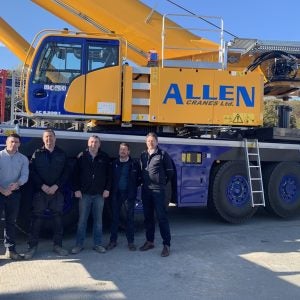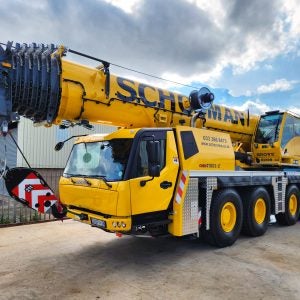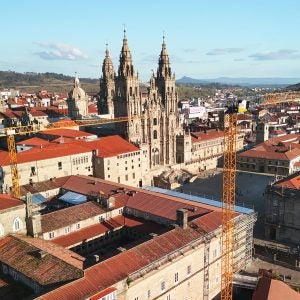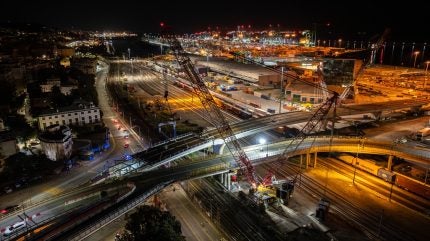
(Unedited press release): When it comes to lifting and moving particularly heavy loads, the team at Italian crane service provider Vernazza Autogru is especially fond of the powerful lattice boom crawler cranes made by Tadano – no surprise then that this included lifting two bridge sections with a weight of 500 and 290 tonnes for a bridge structure at the Porto di Prà shipyard on behalf of shipbuilding company Fincantieri.
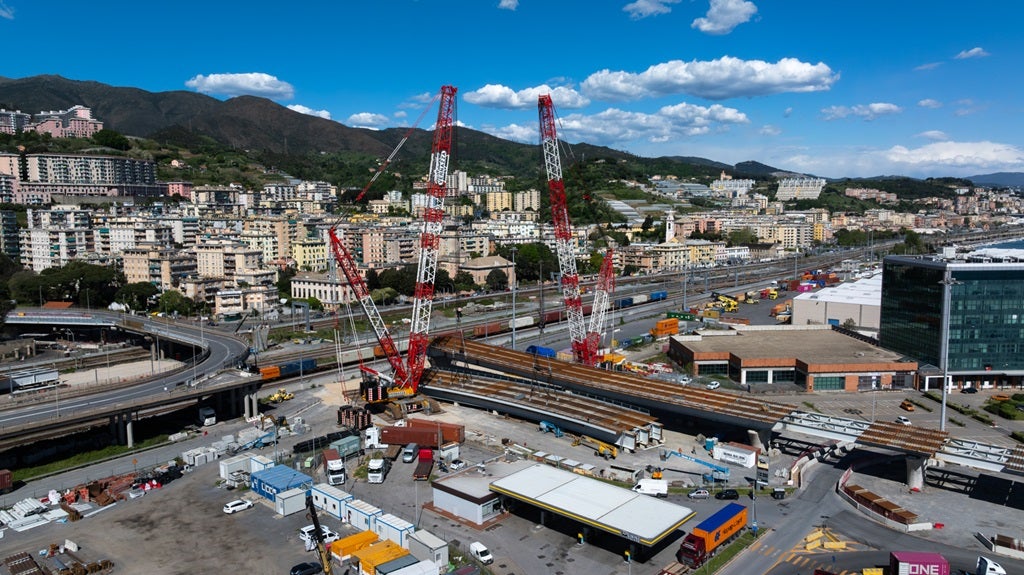
The loads consisted of bridge sections built with a composite construction made of steel girders and a concrete deck on top. These sections had to be lifted onto pillars with utmost precision. “These demanding lifts needed cranes that would not just be able to lift extremely heavy loads, but also to move them while suspended in the air. And to tell you the truth, the only candidates qualified for the job were our two Tadano lattice boom crawler cranes,” explains Marco Galli, who was responsible for the project.
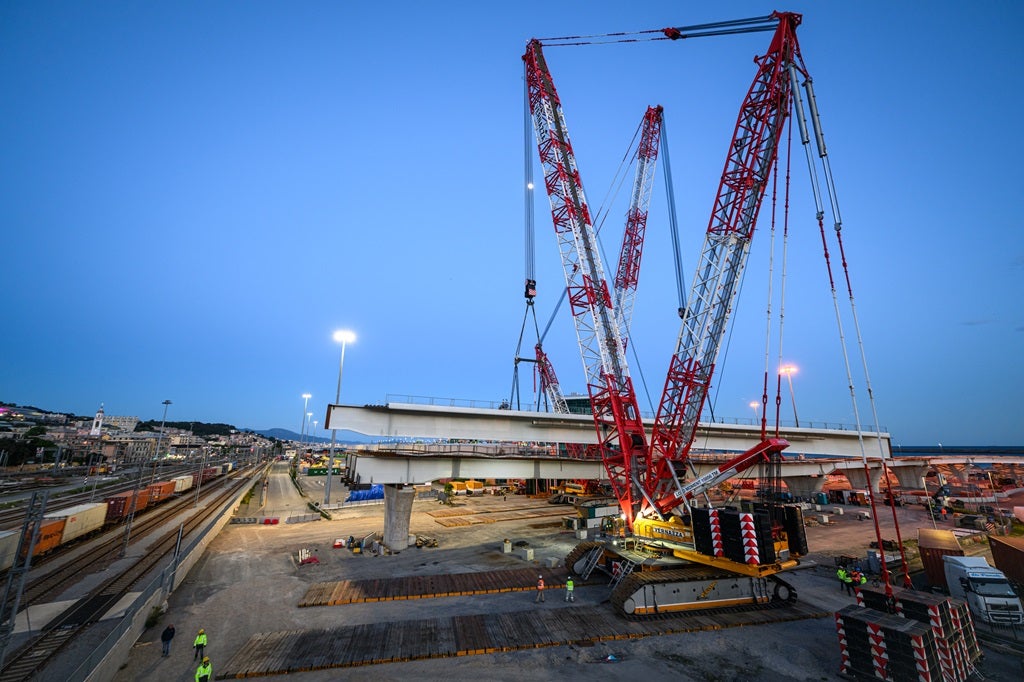
Before the actual job could be carried out, however, the two cranes had to be transported from Vernazza’s headquarters in Vado Ligure to the work site in Porto di Prà and set up there. Once the machines were at their destination, the crane experts at Vernazza took a mere eight days to set up the CC 68.1250-1 and five to set up the CC 38.650-1. “However, we had to relocate the large CC 68.1250-1 during the work and completely dismantle it in order to rebuild it elsewhere. The assembly-friendly design of the Tadano CC cranes was very helpful, so we were able to master that particular challenge without issue,” reports Marco Galli, who also finds the tremendous reliability and extremely sensitive maneuverability of Tadano CC lattice boom crawler cranes to be invaluable.
Complex lifts over transport routes with plenty of traffic
Both the reliability and maneuverability proved to be crucial for the job. After all, the lifting work had to be completed within set timeframes at the port’s access area, and this without having any impact on the heavy traffic there other than where absolutely necessary. Specifically,
Vernazza had to carry out the lifts at this traffic junction over existing bridges, the Genoa-Ventimiglia railway line and the busy Aurelia state road. The traffic routes were of course to be closed for as short a time as possible – so delays of any kind had to be avoided at all costs.
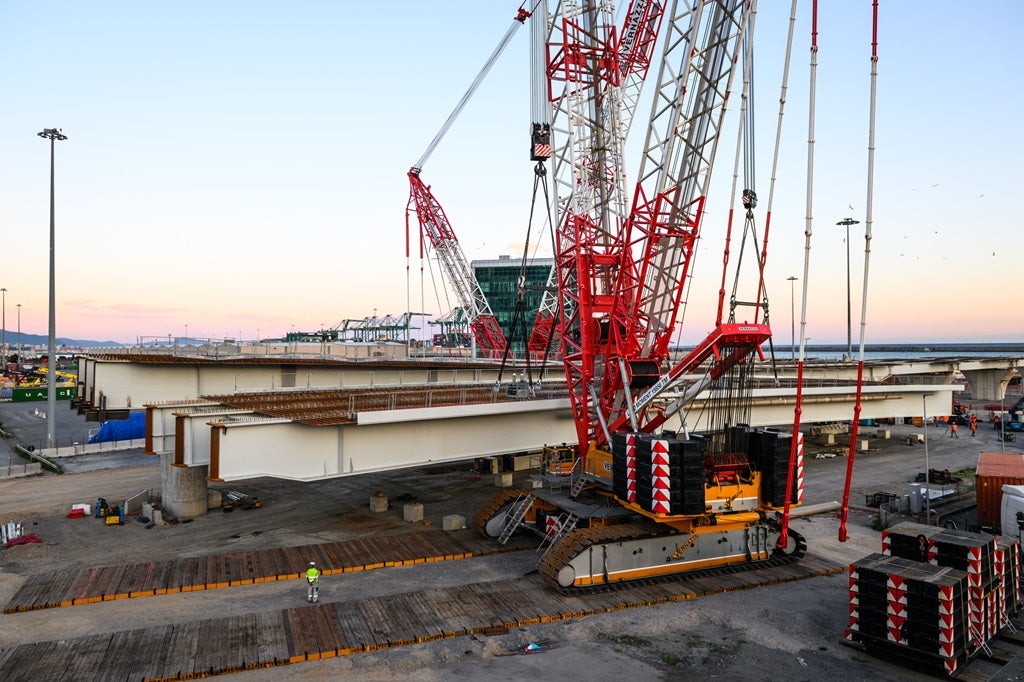
Accordingly, the team planned out every single step in excruciating detail: A tandem lift would be used for the 500-tonne bridge section, while the CC 68.1250-1 would take care of the 290-tonne section all alone. The CC 68.1250-1 was set up with an SSL configuration, a 72-meter boom, and 450 tonnes of Superlift counterweight, while the CC 38.650-1 was also set up with an SSL configuration and a boom of the same length, but 325 tonnes of Superlift counterweight. The two cranes lifted and moved the 500-tonne section together at a radius of 50 meters and a height of seven meters, while the CC 68.1250-1 put the 290-tonne section in place at a radius of 41 meters and a height of nine meters. “We used an eight-person team, consisting of two crane operators and six supervisors and signalpeople, to lift the 500-tonne platform and put it in place with our two cranes. Meanwhile, the team we used to handle the smaller load with the CC 68.1250-1 alone had five people only,” says Marco Galli while explaining how his company’s personnel was deployed for the job.
Perfect teamwork between human and machine
The Vernazza team was on-site for a total of four months for the project – perfectly on schedule: “The fact that everything went exactly as planned was not just due to our team’s professional planning and expert work, but also to the reliability of our two Tadano cranes, which once again proved to their merits,” Marco Galli happily summarizes.
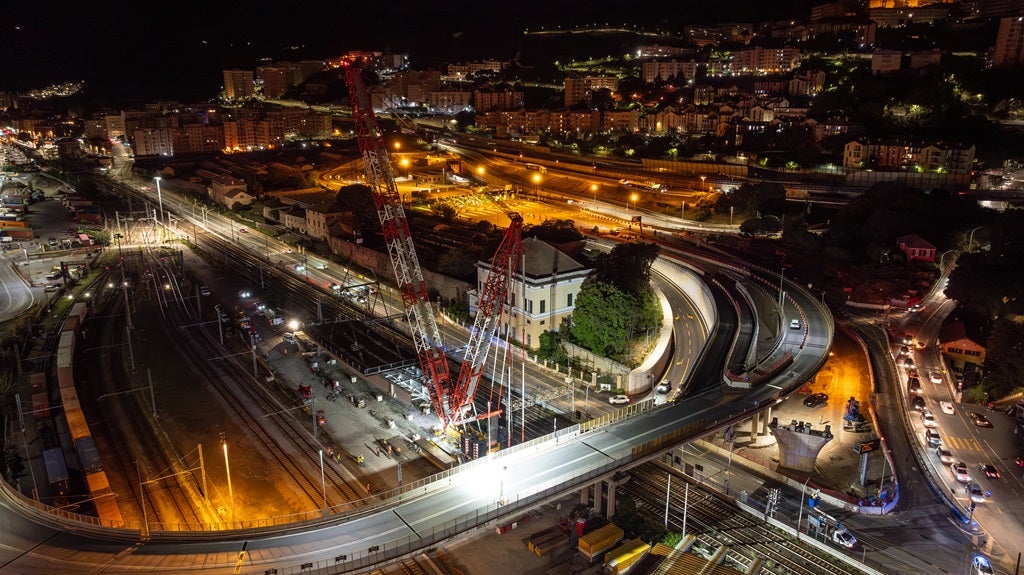
Source: Tadano


